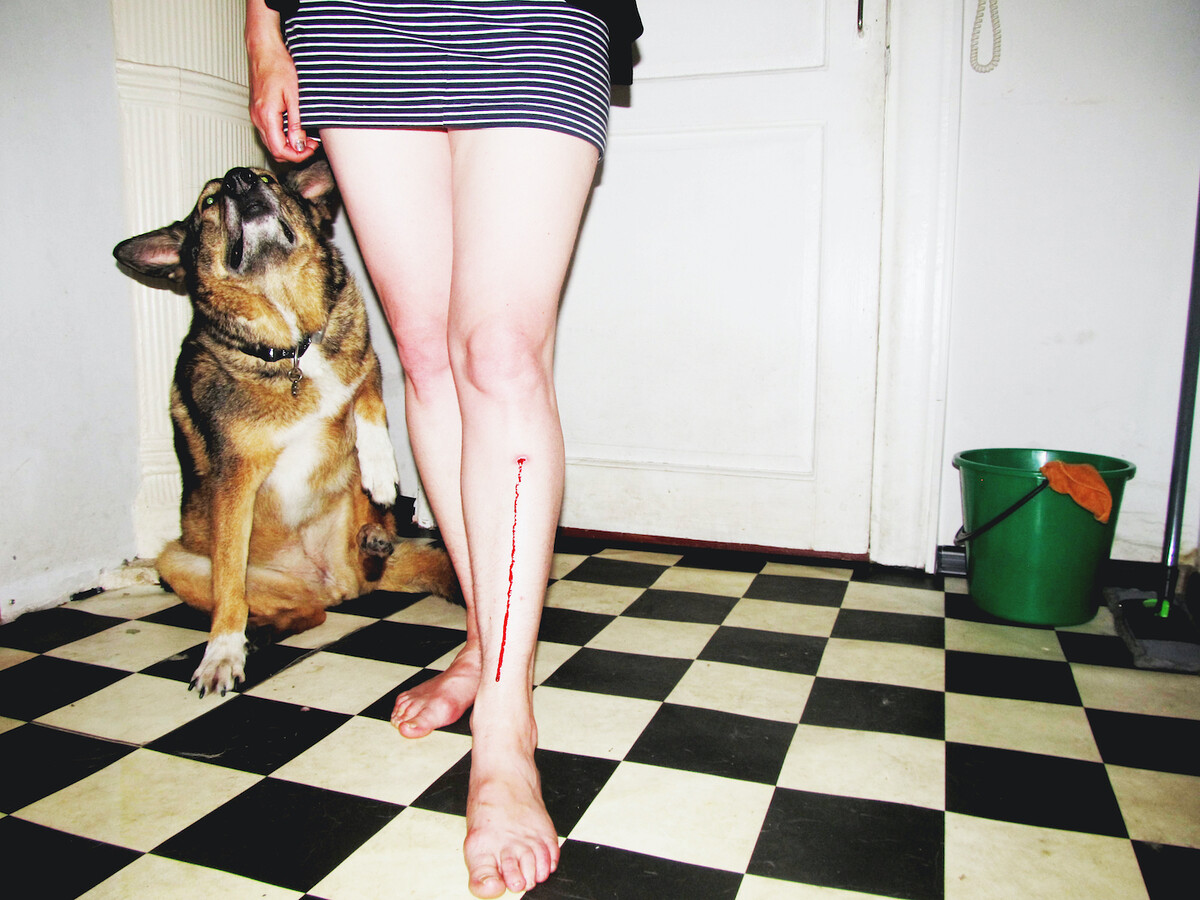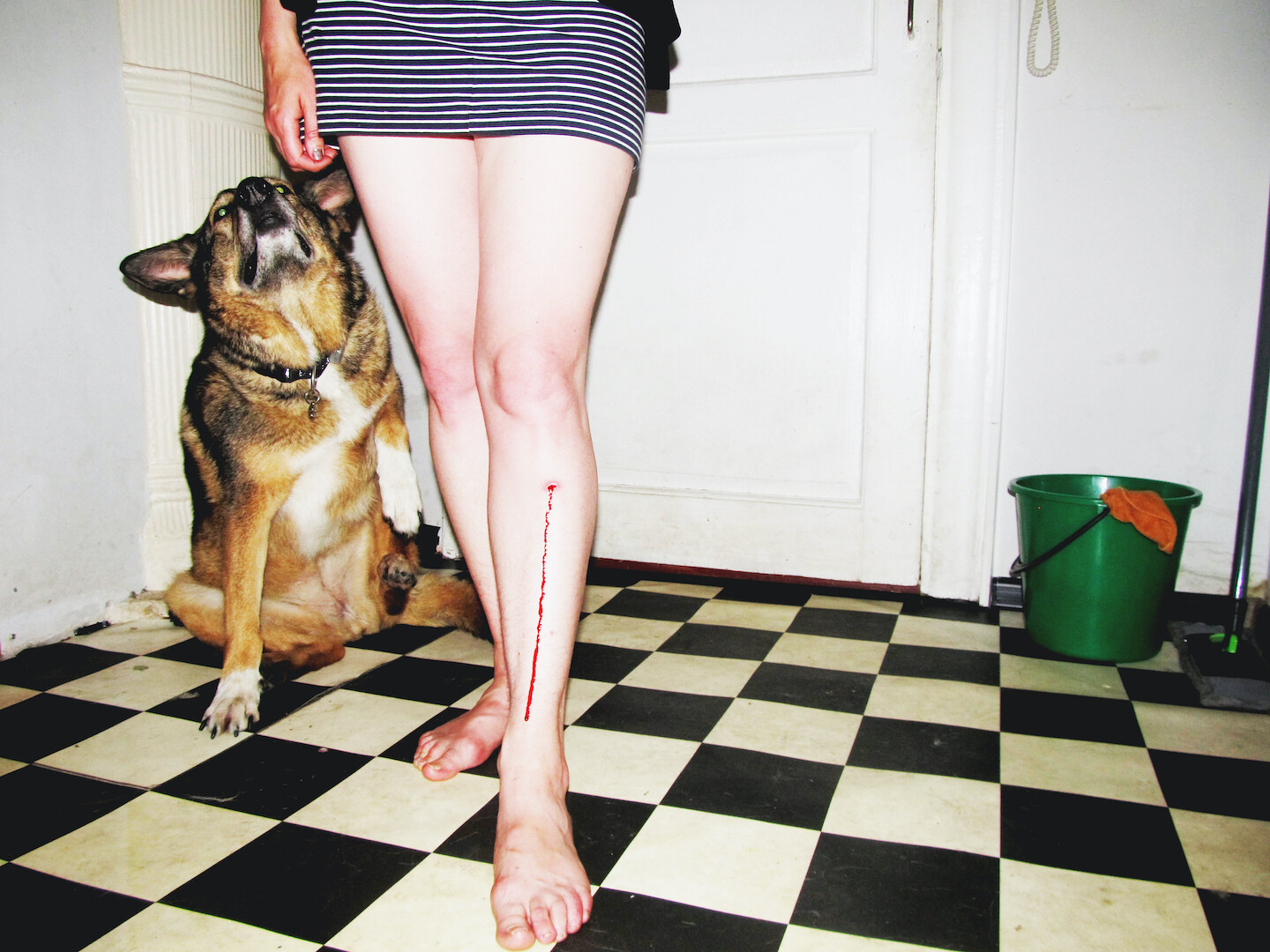Admission starts at $5
June 28, 2022, 7pm
Brooklyn, NY 11205
USA
Join us at e-flux Screening Room on Tuesday, June 28, 7pm for a screening of recent films by Masha Godovannaya, introduced in person by Godovannaya and followed by a conversation between her and film scholar Maria Vinogradova (NYU Jordan Center).
As a curator and film scholar Katerina Beloglazova writes, “in Masha Godovannaya’s experimental films, intimacy is associated with an activist fervor, while a well-targeted irony at the level of editing and gesture nevertheless affords space to an uncompromising empathy with the small and vulnerable. Masha’s overwhelmingly personal view highlights the structural and political place of sensuous imagery and reveals the absurdity and machismo in the self-representation of political ideologies. Her feminist, queer and decolonial methodology is not just an idea that permeates the filmmaker’s work, but a method that forms the basis for editing heterogeneous materials, from film fragments and found video footage to her own material and the films of other filmmakers that have been reinterpreted through editing. Defragmentation, layering, interspersing and analytically separating images as well as collective collaborative laboring with other artists and queer kin-folks comprises a queer strategy where “decolonizing vision means changing the entire order of things.” This approach to cinema is intertwined with the practice of living and being with others, human and other-than-human, and is open to collectivity and transformation.”
Films
Her* Hands and His Shape (with Silvia das Fadas) (14 minutes, 2017)
Do you believe in ghosts? An incantation becomes a refrain in this double projection of sequences from films by women who made films politically, or gave their presence to films politically. Their doubles appear recaptured through Krasnogorsk-3 and Bolex lens and intertwined with landscapes and objects that once haunted the filmmakers. It’s all in her* hands shaping his form, her* labor questioning his authority.
Laika. The Last Flight (4.30 minutes, 2017)
A letter from the dead dog Laika, the first conqueror of space. This is the story of her heroic deeds and martyrdom, a document of one of many lives it was deemed necessary to sacrifice in the name of the human plan for conquest and domination.
Only Two Words (10 minutes, 2018)
This film is based on Holes and Bone, two poems by American poet, lesbian, and cult figure of the New York poetry scene Eileen Myles. The film is an exchange between two queer sensibilities and a dialogue between two women who have [e]migrated.
An Address to Jeanne (with Belinda Kazeem-Kaminski) (4 minutes, 2020)
The iconic depiction of Jeanne of Arc in Carl Theodor Dreyer’s film (1928). Jeanne, destined to become a symbol of faith, patriotism, and self-sacrifice. The separation of flesh and spirit. A little more and she would be a proto-feminist martyr. Is that too much to ask of you, Jeanne?
Flatness Surface Mutation Shift: I Hand Out Flesh to You, You Will Manage It (with Daria Vorujubivaeva, Stanislava Mogileva, Konstantin Shavlovsky and Polina Zaslavskaya, as a part of a queer-feminist affinity art group «Unwanted Organization») (22.40 minutes, 2020)
The film, assembled from different gazes and shriveling feelings, becomes a mutual space of collectivity and queer relationality mediated by cameras, poetic texts, and touches. The film helps to stave off the madness of isolation during the first COVID-19 quarantine of March-April 2020, and is turned into a community—the mutuality of being of numerous others. The multiple cameras keep track of time and reclaim the past. Cinema offers a reprieve from loneliness and social distancing.
Landscapes of Nosferatu (with Belinda Kazeem-Kaminski) (6 minutes, 2020)
Landscapes from Murnau’s Nosferatu: A Symphony of Horror (1922) are accompanied by reflections on the ghosts of political struggles of the past, vision as an instrument of colonization, and the true meaning of the decolonizing gaze that upends all order.
The City Bridges Are Open Again (9.34 minutes, 2020)
A depiction of an idealized, utopian revolution, created using footage from The Battleship Potemkin (1925), October (1928), and Sergei Eisenstein’s 1930 Mexican film.
For more information contact program@e-flux.com.

